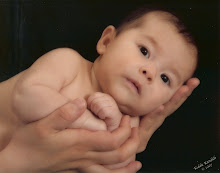Odd names, diseases top celebrity news stories- Kawasaki Disease
NEAHRING COLUMN: Odd names, diseases top celebrity news stories
When the children of celebrities make the news, it is usually a brief story about the bizarre name their parents have chosen for them. I think it started in the seventies, when musician Frank Zappa named his children Dweezil, Moon Unit, Ahmet, and Diva Thin Muffin Zappa. The practice has continued to this day with baby names like Apple, Bluebell, and Shiloh making the celebrity gossip pages.
In a fleeting moment of trendiness, I briefly considered the monikers Beavis and Pinecone before naming my son Daniel, but relented since I am not rich or famous enough to pay for a lifetime of therapy. Recently, however, two stories about celebrity children caught my attention for a different reason both boys had been diagnosed with a disorder called Kawasaki disease.Kawasaki disease is a serious yet treatable illness that results in multiple symptoms, including inflammation of the blood vessels. It is more common in children of Japanese and Korean descent although all ethnic groups are susceptible. It is more likely to affect boys and children younger than five and is seen more often in the winter months.The exact cause of Kawasaki disease is unknown. Many experts suspect that an infectious agent such as a bacteria or a virus is responsible, although fortunately the disease does not seem to be contagious. Recent research indicates that genetics appears to play a role as well. Some studies have demonstrated an association between Kawasaki disease and exposure to carpet cleaners or other chemicals, but a true cause-and-effect relationship has never been conclusively proven.The hallmark sign of Kawasaki disease is high fever that lasts for at least five days, usually accompanied by extreme irritability. There is no specific test for Kawasaki disease, but to confirm the diagnosis of a classic/typical case at least four out of these five signs must be present: bilateral red eyes without drainage, significantly swollen lymph glands in the neck, rash covering all or some of the body, red cracked lips with a red swollen "strawberry" tongue, or swelling and redness of the hands and feet with cracking and peeling on the palms and soles. If fewer signs are present, your child's doctor may make the diagnosis of atypical Kawasaki disease.Kawasaki disease causes inflammation of the blood vessels and can affect the heart and coronary arteries. Your child's doctor will order an echocardiogram (cardiac ultrasound) to look for coronary artery aneurysms; weak, dilated areas of the arteries which can lead to further heart trouble.About a quarter of children with Kawasaki disease who are not treated develop aneurysms, but less than five percent of children who receive appropriate treatment will go on to have cardiac problems. Other long term consequences, like arthritis, are rare, and there is no evidence to support a link between Kawasaki disease and seizure disorders or developmental conditions such as autism.The mainstay of treatment for Kawasaki disease is intravenous gamma globulin, preferably given within ten days of the onset of fever. Aspirin is usually given as well for its anti-inflammatory and anticlotting properties. (While aspirin is perfectly appropriate for the treatment of Kawasaki disease, never give aspirin to your child unless it has been prescribed by a doctor.)The majority of children diagnosed with Kawasaki disease (including those with initial cardiac findings) can expect to make a full recovery. However, your doctor will want to monitor your child's heart closely even after the original symptoms have passed to ensure that everything is flowing smoothly. Scientists are continually learning more about Kawasaki disease, so hopefully one day it will be preventable as well as treatable.Dr. Betsy Neahring practiced pediatrics in Evansville for 10 years before (mostly) retiring to become "Daniel's Mom." Write to her at drbetsyneahring@aol.com.
Saturday, May 2, 2009
Subscribe to:
Post Comments (Atom)




































No comments:
Post a Comment